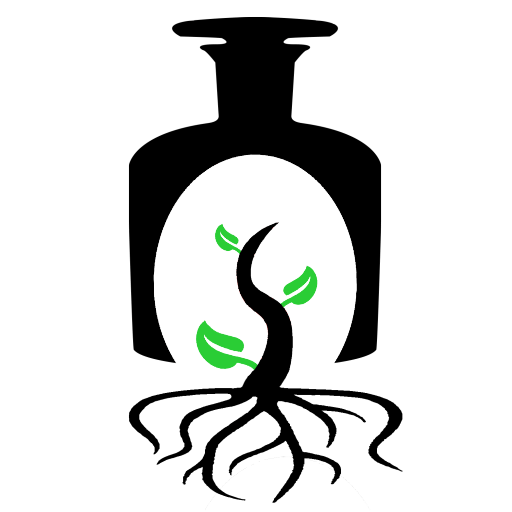Epidemiology
Also known as Myalgic Encephalopathy , Chronic Fatigue Syndrome or CFS is estimated to affect about 17 million people worldwide. It commonly affects young adults, with a common onset between 20 and 40 years. The illness also appears to be more common in women. One study has suggested that nurses have a high rate of CFS, indicating that specific occupations may be at risk (Jason et al., 1998).
Symptoms
Main symptoms include chronic fatigue (hence the name), chronic pain and sleep disturbance, concentration difficulties and mood disturbances.
Aetiology
There is no established single cause for CFS. Potential causes include immunological and infective, metabolic, central nervous system dysfunction, neuroendocrine (adrenal fatigue) and genetics. Food and environmental intolerances may also exacerbate symptoms.
Prolonged, increased stress levels weaken our immune system, leaving it more prone to infections. Long periods of stress or illness can also lead to adrenal fatigue symptoms or chronic tiredness.
GETTING TESTED
Various viruses and virus groups have been implicated in CFS at some time; these include Epstein-Barr virus (EBV), cytomegalovirus, Toxoplasma gondii, Chlamydia pneumoniae, group B coxsackieviruses (CVB), mycoplasma, Borrelia burgdorferi (Lyme disease), and others. About 70% of cases of CFS are preceded by an infectious episode and viral, bacterial or other infections (Pall, 2001). This cause can be confirmed through a blood test checking for antibodies against these viruses. Contact me for more information about getting tested https://regeneruslabs.com/products/advanced-viral-profile-cmv-ebv-hhv6-hvs
(referring practitioner: iulia barta)

Naturopathic and Herbal Medicine Approach to Chronic Fatigue Syndrome
The naturopathic approach to treatment addresses a few key areas with a comprehensive treatment management plan:
-
Identify and eradicate underlying infection (if present).
-
Re-educate and rebuild the immune system.
-
Stabilize energy balance – educate requirement of energy reserves and prevent burn out when energy begins to increase.
-
Normalize circadian rhythm that regulates sleep-wake cycle in order to optimize sleep.
-
Repair adrenal exhaustion by supporting the adrenal glands.
-
Optimize thyroid function to support energy levels.
-
Introduction of gentle exercise tailored to the individual’s needs.
-
Care must be taken to not over exercise owing to exacerbation of chronic fatigue symptoms (Reid et al., 2001).
-
Full nutritional review (tailored nutritional advice addressing deficiencies for optimal repletion)
-
Identify and address any food intolerance.
-
Optimize the digestion and absorption of nutrients.

3 Key herbs for Chronic Fatigue Syndrome
Note: Your medical herbalist has access to over 150 different herbs and hundreds of supplements. Following an in-depth consultation with them, they will choose the right remedies and offer nutritional and other lifestyle advice for your particular needs as no patient is the same as another. Natural remedies and supplements are NOT safe for everyone. I strongly recommend that see your local medical herbalist for a proper assessment, natural treatment and advice. Your medical herbalist will make sure that any remedies prescribed do not interact negatively with any existing medication or supplements. Do NOT stop any medication from your doctor without their consent.
1. Glycyrrhiza glabra (Licorice)
Suboptimal function of the hypothalamic-pituitary-adrenal axis has been implicated in CFS and subsequently hypocortisolism has been observed (Van Den Eede, 2007, Cleare et al., 2004). In these instances, Glycyrrhiza glabra may be of use due to its restorative effects on the adrenal glands and its ability to increase cortisol in the body; increases in cortisol are associated with reductions in fatigue (Cleare et al., 1999) and thus may help to alleviate fatigue in patients with CFS.
In some studies, Licorice has been shown to:
- have anti-viral effects (Bahmani et al., 2014; Fiore et al., 2008; Michaelis et al., 2010).
- increase secretion of serotonin in the stomach (Bahmani et al., 2014)
- have anti Helicobacter pylori effect (Bahmani et al., 2014) primarily thanks to its glycyrrhizinic acid compound (a flavonoid)
- reduce cortisol and aldosterone effects (Bahmani et al., 2014)
- have antioxidant properties (Bahmani et al., 2014)
- have strong anti–inflammatory effects (Bahmani et al., 2014; Schröfelbauer et al., 2009)
- contain a variety of components including sugars, flavonoids, sterols, amino acids, resins, starch, essential oil and saponins (Bahmani et al., 2014)
- reduce the growth and virulence of Candida albicans (Messier et al., 2011)
NOTE. Liquorice is NOT safe for people who suffer from high blood pressure and who are on certain medications. Your medical herbalist will always take your blood pressure and check any medication at your first appointment to ensure safety of the herbal treatment.
2. Astragalus membranaceus (Astragalus or Huáng Qí)
Astragalus is an adaptogen that has a regulating effect on the immune system. In animal studies flavonoids from Astragalus membranaceus have been shown to ameliorate CFS by counteracting abnormal production of cytokines (Kuo et al., 2008). Highlighting the adaptogen properties of Astragalus, rats with CFS that were administered Astragalus have been found to display higher endurance capacity than those without. Acknowledging the severe fatigue and alterations in immunity that accompany CFS, Astragalus membranaceus appears to be an extremely useful botanical for use in CFS. A combination of Astragalus membranaceus and the roots from Salvia miltiorrhiza have been used in a combination known as Myelophil to treat chronic fatigue (but not CFS) (Cho et al., 2009) Whilst an anti-fatigue effect was observed by participants no changes were observed in terms of cytokine expression.
In some studies, Astragalus has been shown to:
- enhance immunity by activating B cells and macrophages (Shao et al., 2004).
- have immunomodulating and immunorestorative effects both in vivo and in vitro (Cho et al., 2007) enhancing the body’s natural defense mechanisms.
- exert insulin-sensitizing and hypoglycemic activities in vivo and in vitro (Mao et al., 2009)
- have anti–obesity effects (Mao et al., 2009)
- have antioxidant and anti-diabetic properties (Yin (et al., 2009)
NOTE: Astragalus should not be taken during an acute infection. Do not self-prescribe natural remedies as these are not always indicated. Always consult a medical herbalist.
3. Withania somnifera (Ashwagandha)
Ashwagandha, is a green shrub that has been used extensively in Ayurvedic medicine for centuries to promote physical and mental well-being (Kulkarni et al., 2007). As with most herbs Withania somnifera contains a range of constituents, however, the ‘Withanolides’ have been identified as some of the major constituents of importance.
In the practice of Ayurvedic medicine, Withania is classified as a rasayana, i.e. it has ‘rejuvenating’ qualities.
This rejuvenating action is likely to be influenced by the nervine and adaptogen properties (Singh et al., 2008) whereby it helps to restore the body providing support from fatigue and debility. Though Withania somnifera has been used for centuries in Ayurvedic medicine there is a scarcity of human clinical research assessing its use.
However, in vitro and in vivo studies provide an indication and explanation of its usefulness in CFS. In vivo, mice with chronic fatigue administered antioxidants and Withania somnifera were shown to have greater endurance than controls, highlighting the adaptogen action of Withania (Singh et al., 2002). Interestingly, the mice were found to have decreased antioxidant defence mechanisms after swimming which were able to be restored using Withania in conjunction with other antioxidants. The authors suggest oxidative stress may be implicated in the pathogenesis of chronic fatigue, however, this may be attenuated with use of Withania and other antioxidants.
Aside from this antioxidant role, Withania has also been observed to exert anti stress and immunological functions restoring stress-induced altered T cell function (Kour et al., 2009) as well as neuroprotective effects attributed to down regulation of nNOS and neurochemical alterations of specific neurotransmitter systems (Bhatnagar e al., 2009) As such, Withania somnifera appears to be of great use for CFS warranting further human trials.
NOTE: Ashwagandha is not safe for everyone. Do not self-prescribe natural remedies. Always consult a medical herbalist.
Main Source for this Article: Hechtman, L., (2012). Clinical naturopathic medicine. Chatswood: Elsevier Australia.
References cited within the article:
Bahmani, Mahmoud, et al. “A review of the health effects and uses of drugs of plant licorice (Glycyrrhiza glabra L.) in Iran.” Asian Pacific Journal of Tropical Disease 4 (2014): S847-S849. APA
M. Bhatnagar, D. Sharma, M. Salvi: Neuroprotective effects of Withania somnifera dunal: A possible mechanism. Neurochem Res. 34(11), 2009 Nov, 1975–1983, Epub 2009 May 15.
Cho, William Chi Shing, and Kwok Nam Leung. “In vitro and in vivo immunomodulating and immunorestorative effects of Astragalus membranaceus.” Journal of ethnopharmacology 113.1 (2007): 132-141.
Cho, J. H., et al. “Myelophil, an extract mix of Astragali Radix and Salviae Radix, ameliorates chronic fatigue: a randomised, double-blind, controlled pilot study.” Complementary therapies in medicine 17.3 (2009): 141-146.
A.J. Cleare: The HPA axis and the genesis of chronic fatigue syndrome. Trends Endocrinol Metab. 15(2), 2004 Mar, 55–59.
A.J. Cleare, et al.: Low-dose hydrocortisone in chronic fatigue syndrome: a randomised crossover trial. Lancet. 353, 1999, 455–458.
Fiore, C., Eisenhut, M., Krausse, R., Ragazzi, E., Pellati, D., Armanini, D. and Bielenberg, J. (2008), Antiviral effects of Glycyrrhiza species. Phytother. Res., 22: 141–148. doi:10.1002/ptr.2295
L.A. Jason, L. Wagner, S. Rosenthal, et al.: Estimating the prevalence of chronic fatigue syndrome among nurses. Am J Med. 105, 1998, S91–S93.
K. Kour, A. Pandey, K.A. Suri, N.K. Satti, K.K. Gupta, S. Bani: Restoration of stress-induced altered T cell function and corresponding cytokines patterns by Withanolide. Int Immunopharmacol. 9(10), 2009 Sep, 1137–1144, Epub 2009 Jun 12.
S.K. Kulkarni, A. Dhir: Withania somnifera: an Indian ginseng. Prog Neuropsychopharmacol Biol Psychiatry. 32(5), 2008 Jul 1, 1093–1105, Epub 2007 Sep 21.
Y.H. Kuo, W.J. Tsai, S.H. Loke, T.S. Wu, W.F. Chiou: Astragalus membranaceus flavonoids (AMF) ameliorate chronic fatigue syndrome induced by food intake restriction plus forced swimming. J Ethnopharmacol. 122(1), 2009 Feb 25, 28–34, Epub 2008 Dec 6.
Mao, Xian-qing, et al. “Hypoglycemic effect of polysaccharide enriched extract of Astragalus membranaceus in diet induced insulin resistant C57BL/6J mice and its potential mechanism.” Phytomedicine 16.5 (2009): 416-425.
Messier, Céline, and Daniel Grenier. “Effect of licorice compounds licochalcone A, glabridin and glycyrrhizic acid on growth and virulence properties of Candida albicans.” Mycoses 54.6 (2011).
Michaelis, Martin, et al. “Glycyrrhizin inhibits highly pathogenic H5N1 influenza A virus-induced pro-inflammatory cytokine and chemokine expression in human macrophages.” Medical microbiology and immunology 199.4 (2010): 291-297.
M.L. Pall: Common aetiology of posttraumatic stress disorder, fibromyalgia, chronic fatigue syndrome and multiple chemical sensitivity syndrome via elevated nitric oxide/peroxynitrite. Medical Hypotheses. 57(2), 2001, 139–145.
S.F. Reid, T. Chalder, A. Cleare, M. Hotopf, S. Wessely: Chronic fatigue syndrome. Clin Evid (Online). 2008 Aug 28, 2008. pii: 1101.
Schröfelbauer, Bärbel, et al. “Glycyrrhizin, the main active compound in liquorice, attenuates pro-inflammatory responses by interfering with membrane-dependent receptor signalling.” Biochemical Journal 421.3 (2009): 473-482.
MLA Shao, Bao-Mei, et al. “A study on the immune receptors for polysaccharides from the roots of Astragalus membranaceus, a Chinese medicinal herb.” Biochemical and biophysical research communications 320.4 (2004): 1103-1111.
A. Singh, P.S. Naidu, S. Gupta, S.K. Kulkarni: Effect of natural and synthetic antioxidants in a mouse model of chronic fatigue syndrome. J Med Food. 2002, 5211–5220.
R.H. Singh, K. Narsimhamurthy, G. Singh: Neuronutrient impact of Ayurvedic Rasayana therapy in brain ageing. Biogerontology. 9(6), 2008 Dec, 369–374, Epub 2008 Oct 18.
F. Van Den Eede, G. Moorkens, B. Van Houdenhove, P. Cosyns, S.J. Claes: Hypothalamic-pituitary-adrenal axis function in chronic fatigue syndrome. Neuropsychobiology. 55(2), 2007, 112–120, Epub 2007 Jun 27.
MLA Yin, Yu, et al. “Antioxidant and antidiabetic effects of various sections of Astragalus membranaceus.” Korean Journal of Pharmacognosy (2009).
(referring practitioner: iulia barta)
Naturopathic and Herbal Medicine Approach to Chronic Fatigue Syndrome
The naturopathic approach to treatment addresses a few key areas with a comprehensive treatment management plan:
-
Identify and eradicate underlying infection (if present).
-
Re-educate and rebuild the immune system.
-
Stabilize energy balance – educate requirement of energy reserves and prevent burn out when energy begins to increase.
-
Normalize circadian rhythm that regulates sleep-wake cycle in order to optimize sleep.
-
Repair adrenal exhaustion by supporting the adrenal glands.
-
Optimize thyroid function to support energy levels.
-
Introduction of gentle exercise tailored to the individual’s needs.
-
Care must be taken to not over exercise owing to exacerbation of chronic fatigue symptoms (Reid et al., 2001).
-
Full nutritional review (tailored nutritional advice addressing deficiencies for optimal repletion)
-
Identify and address any food intolerance.
-
Optimize the digestion and absorption of nutrients.
3 Key herbs for Chronic Fatigue Syndrome
Note: Your medical herbalist has access to over 150 different herbs and hundreds of supplements. Following an in-depth consultation with them, they will choose the right remedies and offer nutritional and other lifestyle advice for your particular needs as no patient is the same as another. Natural remedies and supplements are NOT safe for everyone. I strongly recommend that see your local medical herbalist for a proper assessment, natural treatment and advice. Your medical herbalist will make sure that any remedies prescribed do not interact negatively with any existing medication or supplements. Do NOT stop any medication from your doctor without their consent.
1. Glycyrrhiza glabra (Licorice)
Suboptimal function of the hypothalamic-pituitary-adrenal axis has been implicated in CFS and subsequently hypocortisolism has been observed (Van Den Eede, 2007, Cleare et al., 2004). In these instances, Glycyrrhiza glabra may be of use due to its restorative effects on the adrenal glands and its ability to increase cortisol in the body; increases in cortisol are associated with reductions in fatigue (Cleare et al., 1999) and thus may help to alleviate fatigue in patients with CFS.
In some studies, Licorice has been shown to:
- have anti-viral effects (Bahmani et al., 2014; Fiore et al., 2008; Michaelis et al., 2010).
- increase secretion of serotonin in the stomach (Bahmani et al., 2014)
- have anti Helicobacter pylori effect (Bahmani et al., 2014) primarily thanks to its glycyrrhizinic acid compound (a flavonoid)
- reduce cortisol and aldosterone effects (Bahmani et al., 2014)
- have antioxidant properties (Bahmani et al., 2014)
- have strong anti–inflammatory effects (Bahmani et al., 2014; Schröfelbauer et al., 2009)
- contain a variety of components including sugars, flavonoids, sterols, amino acids, resins, starch, essential oil and saponins (Bahmani et al., 2014)
- reduce the growth and virulence of Candida albicans (Messier et al., 2011)
NOTE. Liquorice is NOT safe for people who suffer from high blood pressure and who are on certain medications. Your medical herbalist will always take your blood pressure and check any medication at your first appointment to ensure safety of the herbal treatment.
2. Astragalus membranaceus (Astragalus or Huáng Qí)
Astragalus is an adaptogen that has a regulating effect on the immune system. In animal studies flavonoids from Astragalus membranaceus have been shown to ameliorate CFS by counteracting abnormal production of cytokines (Kuo et al., 2008). Highlighting the adaptogen properties of Astragalus, rats with CFS that were administered Astragalus have been found to display higher endurance capacity than those without. Acknowledging the severe fatigue and alterations in immunity that accompany CFS, Astragalus membranaceus appears to be an extremely useful botanical for use in CFS. A combination of Astragalus membranaceus and the roots from Salvia miltiorrhiza have been used in a combination known as Myelophil to treat chronic fatigue (but not CFS) (Cho et al., 2009) Whilst an anti-fatigue effect was observed by participants no changes were observed in terms of cytokine expression.
In some studies, Astragalus has been shown to:
- enhance immunity by activating B cells and macrophages (Shao et al., 2004).
- have immunomodulating and immunorestorative effects both in vivo and in vitro (Cho et al., 2007) enhancing the body’s natural defense mechanisms.
- exert insulin-sensitizing and hypoglycemic activities in vivo and in vitro (Mao et al., 2009)
- have anti–obesity effects (Mao et al., 2009)
- have antioxidant and anti-diabetic properties (Yin (et al., 2009)
NOTE: Astragalus should not be taken during an acute infection. Do not self-prescribe natural remedies as these are not always indicated. Always consult a medical herbalist.
3. Withania somnifera (Ashwagandha)
Ashwagandha, is a green shrub that has been used extensively in Ayurvedic medicine for centuries to promote physical and mental well-being (Kulkarni et al., 2007). As with most herbs Withania somnifera contains a range of constituents, however, the ‘Withanolides’ have been identified as some of the major constituents of importance.
In the practice of Ayurvedic medicine, Withania is classified as a rasayana, i.e. it has ‘rejuvenating’ qualities.
This rejuvenating action is likely to be influenced by the nervine and adaptogen properties (Singh et al., 2008) whereby it helps to restore the body providing support from fatigue and debility. Though Withania somnifera has been used for centuries in Ayurvedic medicine there is a scarcity of human clinical research assessing its use.
However, in vitro and in vivo studies provide an indication and explanation of its usefulness in CFS. In vivo, mice with chronic fatigue administered antioxidants and Withania somnifera were shown to have greater endurance than controls, highlighting the adaptogen action of Withania (Singh et al., 2002). Interestingly, the mice were found to have decreased antioxidant defence mechanisms after swimming which were able to be restored using Withania in conjunction with other antioxidants. The authors suggest oxidative stress may be implicated in the pathogenesis of chronic fatigue, however, this may be attenuated with use of Withania and other antioxidants.
Aside from this antioxidant role, Withania has also been observed to exert anti stress and immunological functions restoring stress-induced altered T cell function (Kour et al., 2009) as well as neuroprotective effects attributed to down regulation of nNOS and neurochemical alterations of specific neurotransmitter systems (Bhatnagar e al., 2009) As such, Withania somnifera appears to be of great use for CFS warranting further human trials.
NOTE: Ashwagandha is not safe for everyone. Do not self-prescribe natural remedies. Always consult a medical herbalist.
Main Source for this Article: Hechtman, L., (2012). Clinical naturopathic medicine. Chatswood: Elsevier Australia.
References cited within the article:
Bahmani, Mahmoud, et al. “A review of the health effects and uses of drugs of plant licorice (Glycyrrhiza glabra L.) in Iran.” Asian Pacific Journal of Tropical Disease 4 (2014): S847-S849. APA
M. Bhatnagar, D. Sharma, M. Salvi: Neuroprotective effects of Withania somnifera dunal: A possible mechanism. Neurochem Res. 34(11), 2009 Nov, 1975–1983, Epub 2009 May 15.
Cho, William Chi Shing, and Kwok Nam Leung. “In vitro and in vivo immunomodulating and immunorestorative effects of Astragalus membranaceus.” Journal of ethnopharmacology 113.1 (2007): 132-141.
Cho, J. H., et al. “Myelophil, an extract mix of Astragali Radix and Salviae Radix, ameliorates chronic fatigue: a randomised, double-blind, controlled pilot study.” Complementary therapies in medicine 17.3 (2009): 141-146.
A.J. Cleare: The HPA axis and the genesis of chronic fatigue syndrome. Trends Endocrinol Metab. 15(2), 2004 Mar, 55–59.
A.J. Cleare, et al.: Low-dose hydrocortisone in chronic fatigue syndrome: a randomised crossover trial. Lancet. 353, 1999, 455–458.
Fiore, C., Eisenhut, M., Krausse, R., Ragazzi, E., Pellati, D., Armanini, D. and Bielenberg, J. (2008), Antiviral effects of Glycyrrhiza species. Phytother. Res., 22: 141–148. doi:10.1002/ptr.2295
L.A. Jason, L. Wagner, S. Rosenthal, et al.: Estimating the prevalence of chronic fatigue syndrome among nurses. Am J Med. 105, 1998, S91–S93.
K. Kour, A. Pandey, K.A. Suri, N.K. Satti, K.K. Gupta, S. Bani: Restoration of stress-induced altered T cell function and corresponding cytokines patterns by Withanolide. Int Immunopharmacol. 9(10), 2009 Sep, 1137–1144, Epub 2009 Jun 12.
S.K. Kulkarni, A. Dhir: Withania somnifera: an Indian ginseng. Prog Neuropsychopharmacol Biol Psychiatry. 32(5), 2008 Jul 1, 1093–1105, Epub 2007 Sep 21.
Y.H. Kuo, W.J. Tsai, S.H. Loke, T.S. Wu, W.F. Chiou: Astragalus membranaceus flavonoids (AMF) ameliorate chronic fatigue syndrome induced by food intake restriction plus forced swimming. J Ethnopharmacol. 122(1), 2009 Feb 25, 28–34, Epub 2008 Dec 6.
Mao, Xian-qing, et al. “Hypoglycemic effect of polysaccharide enriched extract of Astragalus membranaceus in diet induced insulin resistant C57BL/6J mice and its potential mechanism.” Phytomedicine 16.5 (2009): 416-425.
Messier, Céline, and Daniel Grenier. “Effect of licorice compounds licochalcone A, glabridin and glycyrrhizic acid on growth and virulence properties of Candida albicans.” Mycoses 54.6 (2011).
Michaelis, Martin, et al. “Glycyrrhizin inhibits highly pathogenic H5N1 influenza A virus-induced pro-inflammatory cytokine and chemokine expression in human macrophages.” Medical microbiology and immunology 199.4 (2010): 291-297.
M.L. Pall: Common aetiology of posttraumatic stress disorder, fibromyalgia, chronic fatigue syndrome and multiple chemical sensitivity syndrome via elevated nitric oxide/peroxynitrite. Medical Hypotheses. 57(2), 2001, 139–145.
S.F. Reid, T. Chalder, A. Cleare, M. Hotopf, S. Wessely: Chronic fatigue syndrome. Clin Evid (Online). 2008 Aug 28, 2008. pii: 1101.
Schröfelbauer, Bärbel, et al. “Glycyrrhizin, the main active compound in liquorice, attenuates pro-inflammatory responses by interfering with membrane-dependent receptor signalling.” Biochemical Journal 421.3 (2009): 473-482.
MLA Shao, Bao-Mei, et al. “A study on the immune receptors for polysaccharides from the roots of Astragalus membranaceus, a Chinese medicinal herb.” Biochemical and biophysical research communications 320.4 (2004): 1103-1111.
A. Singh, P.S. Naidu, S. Gupta, S.K. Kulkarni: Effect of natural and synthetic antioxidants in a mouse model of chronic fatigue syndrome. J Med Food. 2002, 5211–5220.
R.H. Singh, K. Narsimhamurthy, G. Singh: Neuronutrient impact of Ayurvedic Rasayana therapy in brain ageing. Biogerontology. 9(6), 2008 Dec, 369–374, Epub 2008 Oct 18.
F. Van Den Eede, G. Moorkens, B. Van Houdenhove, P. Cosyns, S.J. Claes: Hypothalamic-pituitary-adrenal axis function in chronic fatigue syndrome. Neuropsychobiology. 55(2), 2007, 112–120, Epub 2007 Jun 27.
MLA Yin, Yu, et al. “Antioxidant and antidiabetic effects of various sections of Astragalus membranaceus.” Korean Journal of Pharmacognosy (2009).




Dear Iulia, thank you so much for sharing this – so well researched and put together. Very relevant back up to how I treat patients with CFS. Also found useful a book Fighting Fatigue – a practical guide to managing the symptoms of CFS/ME 2009 Pemberton S and Berry C (eds) about managing energy and gradually recovering – I wanted to give patients a solid strategy as well as herbs.
Sara Hills
Dear Sara. Thanks you so much for the book recommendation! I am sure that all the patients with CFS will find this useful! You are so right, patients need much more support than just the herbs. Thank you for your useful feedback!
That’s very kind of you. Bless you 🙏